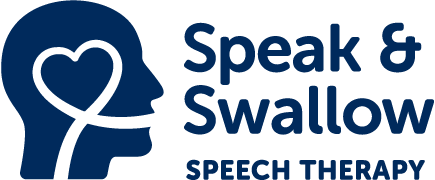What Are Orofacial Myofunctional Disorders?
The awareness of Orofacial Myofunctional Disorders is increasing, but many people still have questions about what they are and what to do if you think you might have one. In this article, our team of Speech Pathologists with training in Orofacial Myology will guide you through what you need to know about Orofacial Myofunctional Disorders. If you or someone you care for is experiencing difficulties with eating, talking or breathing, this is for you.
Find out more about what Orofacial Myofunctional Disorders are and how Orofacial Myofunctional Therapy can help in this article.
What Are Orofacial Myofunctional Disorders?
Orofacial Myofunctional Disorders (OMDs) are caused by abnormal patterns involving the oral and facial muscles. They can interfere with the growth and function of the muscles and bones of the face and mouth, including how these structures are used to support eating, talking, and breathing.
Orofacial Myofunctional Disorders can include tongue thrust, mouth breathing, swallowing/feeding difficulties, overbite, underbite, open bite, tongue tie, and lip tie, to name a few. Orofacial Myofunctional Disorders can be caused by a combination of a physical difference in the structure of the mouth/facial muscles (i.e. presence of a tongue tie) and patterns of behavior over time.
Causes of Orofacial Myofunctional Disorders include:
- Genetics
- Orthodontic issues
- Structural abnormalities
- Neurological disorders
- Obstructed nasal passages (for example, due to enlarged tonsils or adenoids, or allergies), causing the tongue to be in an improper position.
- Noxious habits (thumb/finger sucking, tongue sucking, nail biting, hair chewing, prolonged dummy or bottle use)
How Do I Know If I Have an Orofacial Myofunctional Disorder?
Orofacial Myofunctional Disorders can occur in children, teenagers and even adults. Because these disorders are often caused by a combination of structural differences in the oral and facial muscles and a pattern of behavior over time, they may not be noticed until symptoms begin impacting everyday life. Orofacial Myofunctional Disorders can also be brought on by changes in or oral and facial muscle function, like in the case of degenerative conditions.
The following list of symptoms provides a brief snapshot of some of the things you may experience if you have Orofacial Myofunctional Disorder. However, it is recommended to seek the support of a professional to confirm a diagnosis.
Symptoms of Orofacial Myofunctional Disorder:
- Frequent breathing through the mouth / difficulty breathing through the nose.
- Limited tongue movement.
- Eating that is messy or difficult.
- An overbite, underbite, and/or other dental problems.
- The tongue pushing past the teeth, even when a person is not talking or using the tongue.
- Difficulty saying some sounds.
- Teeth grinding.
- Difficulty breathing while sleeping – including sleep disordered breathing and sleep apnoea.
- Chewing difficulties.
- Swallowing difficulties.
- Drooling.
- Difficulty closing the lips to swallow.
- TMJ pain.
What to Do If You Think You Have an Orofacial Myofunctional Disorder
If you are experiencing symptoms like those listed above, and would like to be assessed for an Orofacial Myofunctional Disorder, you’ll need to find a local professional that has been certified in Orofacial Myology. This certification is often held by Dentists, Sleep Apnoea Specialists, and even Speech Pathologists.
Here at Speak and Swallow Speech Therapy, we provide Orofacial Myology for adults in North Brisbane (Burpengary) to address a range of symptoms. With our clinical experience in swallowing and communication disorders, we are well equipped to support individuals with Orofacial Myofunctional concerns.
If you, a teenager or adult in your care, could benefit from the professional and personalised support we provide at Speak and Swallow, please get in touch by phoning 1300 867 732 or filling out our contact form here.
